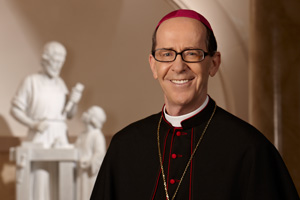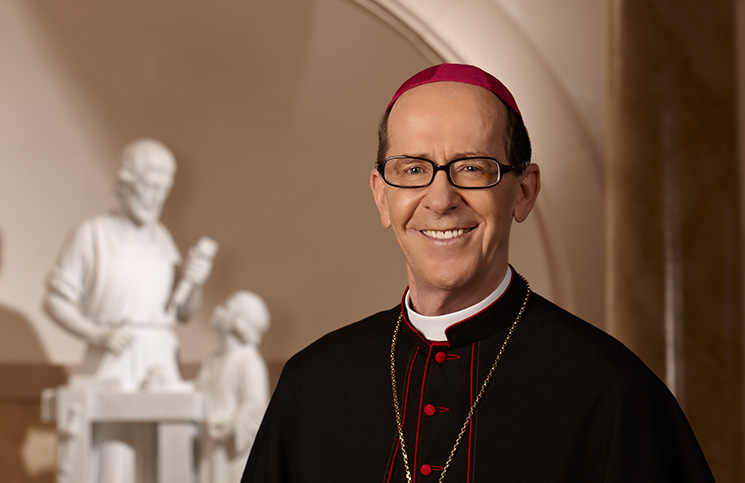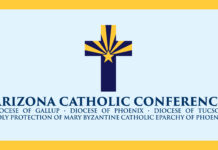It should come as no surprise that Pope Francis has much to say about Jesus, since Peter and all his successors have been called by God to make Christ known and loved.

It was Peter who answered Jesus’ question (Cf. Mt 16:16ff), “Who do you say that I am?”
In turn, it was Jesus who said in reply, “You are Peter and on this rock I shall build my Church, and the gates of the netherworld shall not prevail against it.”
The identity of Peter, then, is closely linked to the identity of Jesus. In parallel fashion, only in Jesus can you and I, or any human person, come to understand his or her identity and purpose in life.
With so much that could be said about Jesus, so many different aspects to the mystery of His Person, where can one begin? It might be helpful to approach this mystery by considering the primary things that Pope Francis says about Him.
The Rich One who became poor
The Holy Father sees in the poverty of Jesus a wealth of love. As St. Paul writes to the Corinthians (2 Cor 8:9), “For you know the gracious act of our Lord Jesus Christ, that for your sake He became poor although He was rich, so that by His poverty you might become rich.”
The poverty of Jesus is expressed in various ways, beginning with His Incarnation, when He who is the eternal Son of God emptied Himself of glory and became man through the “Fiat” of the Virgin Mary. While Jesus remained divine, in a mysterious yet real way, He became fully human, even to the extent of sharing completely in our weaknesses, suffering and death.[quote_box_right]
Pope Francis’ Game Plan
Read more columns from this series by Bishop Olmsted.
[/quote_box_right]
Pope Francis writes of Jesus (“The Joy of the Gospel,” #197), “The Savior was born in a manger, in the midst of animals, like children of poor families; He was presented at the Temple along with two turtledoves, the offering made by those who could not afford a lamb; He was raised in a home of ordinary workers and worked with His own hands to earn His bread…”
The deepest poverty of Jesus is expressed in His suffering and death on the Cross. Thus, in addition to the Incarnation, Pope Francis frequently makes reference to Jesus’ Cross, because it is such a profound expression of His love.
The Beloved Son who accompanies us
Jesus emptied Himself of glory and became man, not only to reveal the love of the Father but also to overcome the distance between ourselves and God, a distance that sin brings about. Pope Francis explains why Jesus’ accompaniment is so important (#170): “Some people think they are free if they can avoid God; they fail to see that they remain existentially orphaned, helpless, homeless. They cease being pilgrims and become drifters, flitting around themselves and never getting anywhere.”
At the Last Supper, shortly before His Cross overcame the distance between fallen humanity and God, Jesus promised His disciples (Jn 14:18), “I will not leave you orphans; I will come to you.”
With these words, we see how Jesus definitively overcame the great chasm between sinful humanity and the all holy God, and how He continues His presence with us, through the gift of His Spirit.
Since Jesus accompanies us with tenderness and love, we are able to be channels of His love for others. Thus, Pope Francis writes (#169), “In a culture paradoxically suffering from anonymity and at the same time obsessed with the details of other people’s lives, shamelessly given over to morbid curiosity, the Church must look more closely and sympathetically at others whenever necessary.”
This means that you and I are able, by God’s grace, to “make present the fragrance of Christ’s closeness and His personal gaze… to initiate everyone… into the ‘art of accompaniment’ which teaches us to remove our sandals before the sacred ground of the other (cf. Ex 3:5). The pace of this accompaniment must be steady and reassuring, reflecting our closeness and our compassionate gaze which also heals, liberates and encourages growth in the Christian life.”
The One who brings Joy to the world
It should not surprise anyone, although it often does, that Jesus frequently speaks about joy. He says, for example, at the end of the parable of the lost sheep (Lk 15:1-7), “I tell you, in just the same way there will be more joy in heaven over one sinner who repents than over ninety-nine righteous people who have no need of repentance.”
At the Last Supper, just before dying on the Cross, Jesus tells the Apostles (Jn 16:22), “…you also are now in anguish. But I will see you again, and your hearts will rejoice, and no one will take your joy away from you.”
In his first Apostolic Exhortation, Pope Francis emphasizes the joy that comes from encountering Jesus. This is how his own life has been transformed, and how Christ has been present in his ministry. The Holy Father writes (#1), “Those who accept His offer of salvation are set free from sin, sorrow, inner emptiness and loneliness. With Christ joy is constantly born anew.”
Pope Francis’ game plan for the Church is simply this (#1): “…to encourage the Christian faithful to embark upon a new chapter of evangelization marked by this joy.”
All followers of Jesus have the duty to hand on the Gospel without exception. To be successful in this missionary task, the Holy Father insists that Christians (#15) “should appear as people who wish to share their joy, who point to a horizon of beauty and who invite others to a delicious banquet. It is not by proselytizing that the Church grows, but by attraction.”
Next time we shall continue with this series on the Gospel of Joy, considering what Pope Francis has to say about the Blessed Virgin Mary, whom he calls “Jesus’ gift to His people.”







